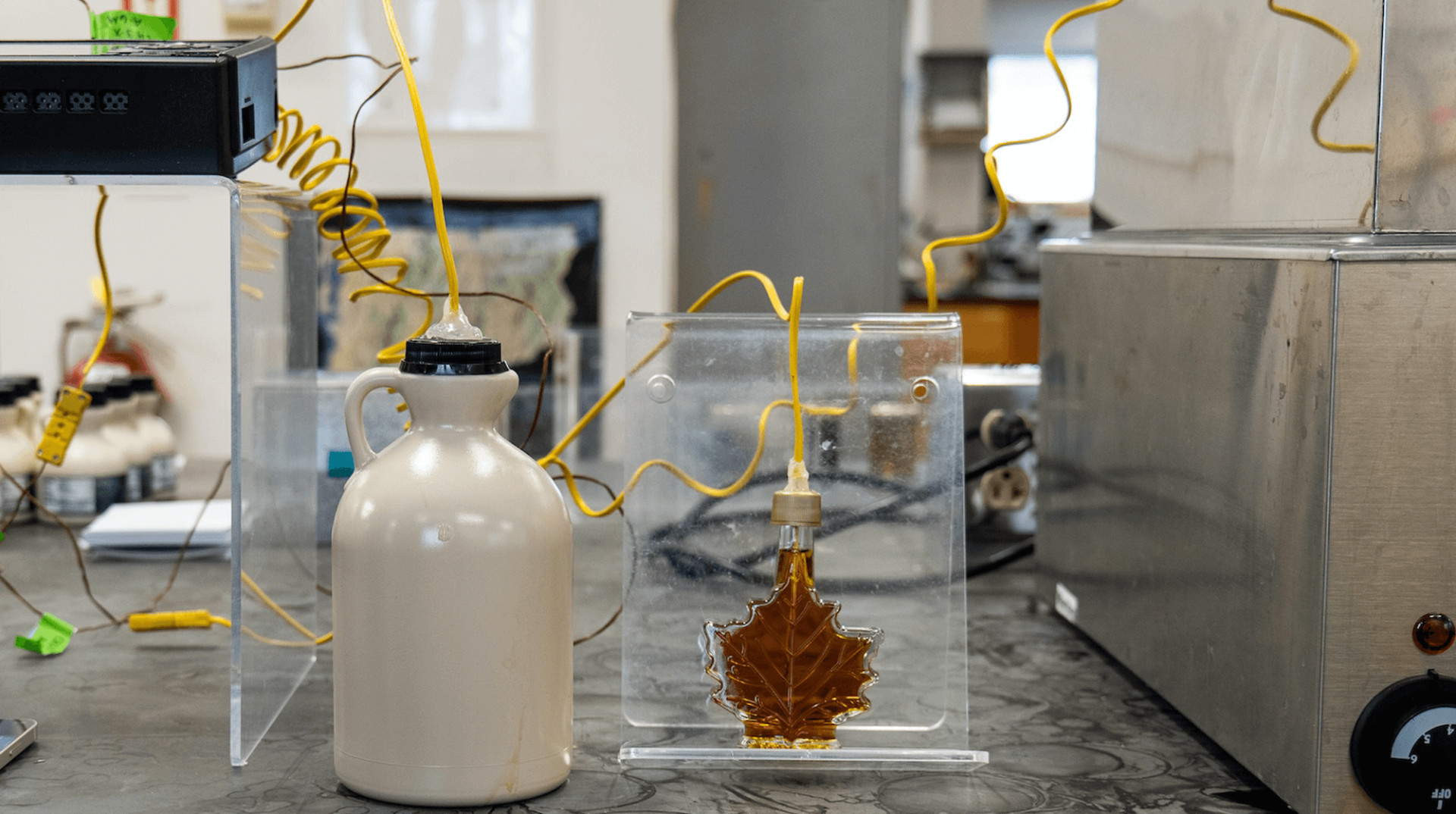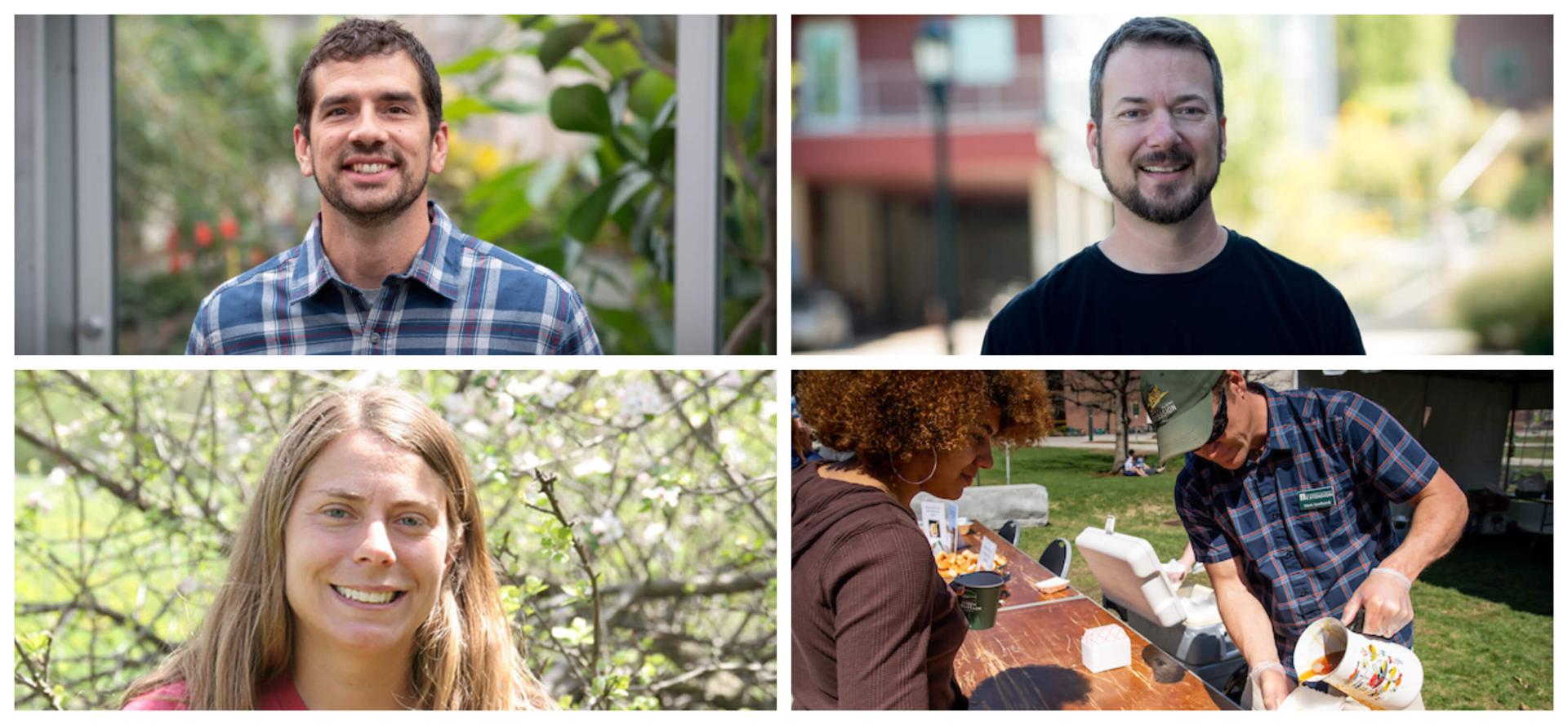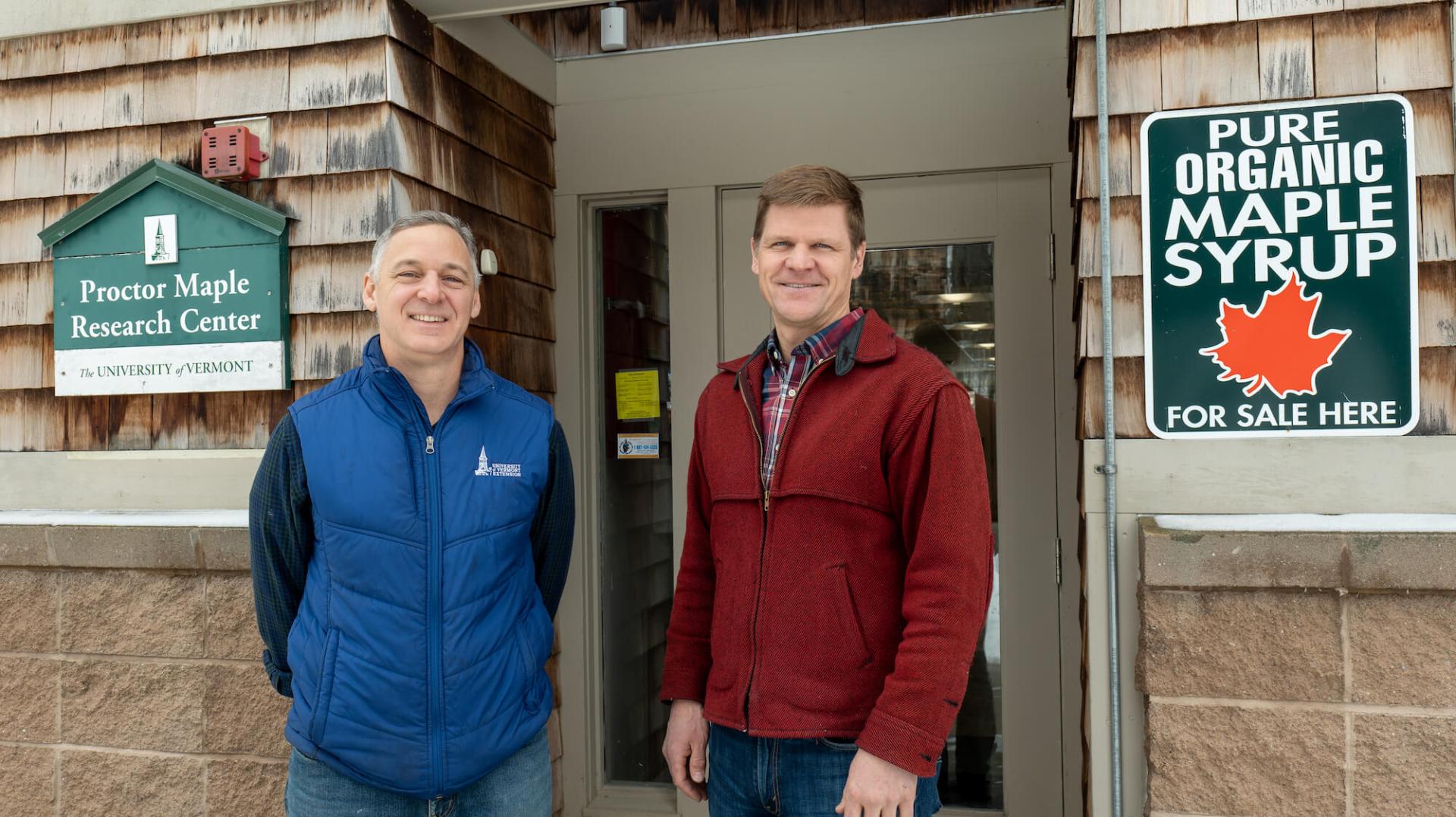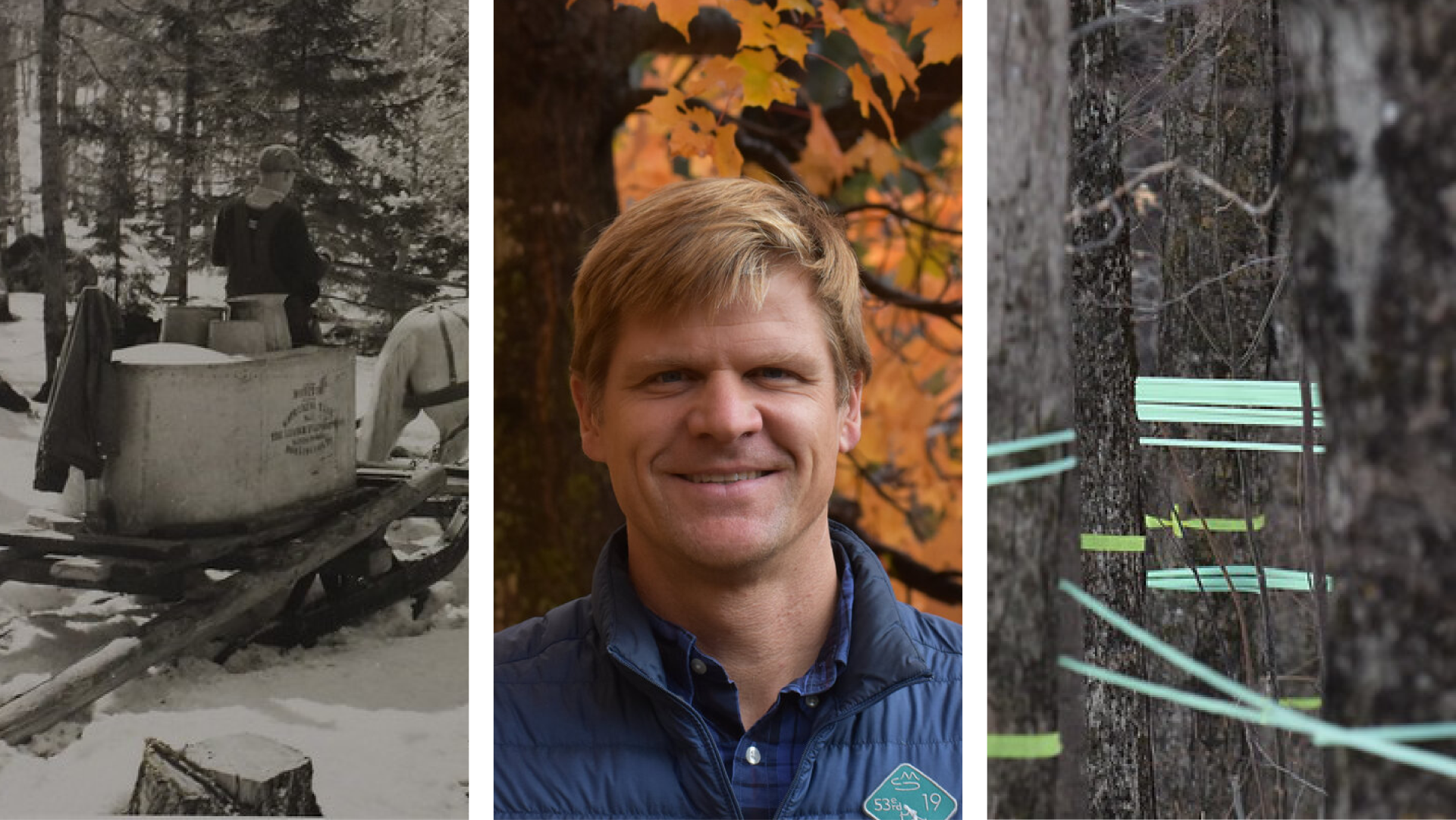Maple syrup is a much-loved product here in Vermont. The glass leaf-shaped bottles and plastic jugs can be found at every gas station, grocery store, and sugar shack. UVM Extension Maple Specialist and researcher Mark Isselhardt is researching how to improve food safety on this local staple.
When maple syrup is bottled, research has shown it needs to be between 180 and 190 degrees to kill bacteria, yeast or mold that may be present. How long it needs to be at that temperature range, depends greatly on different types of packaging size and material.
"You can imagine a bigger mass of hot syrup in a gallon cools far slower than say a half pint, so issues of spoilage with bacteria, yeast, and mold are generally not present," said Isselhardt. "Small containers made of glass act as a heat sink and therefore cool syrup quickly, so if you're going to see spoilage, you might see it in those containers."
Isselhardt received a grant from the Food Systems Research Center to purchase a piece of equipment that will measure the temperature of syrup at varying intervals in different types of containers.
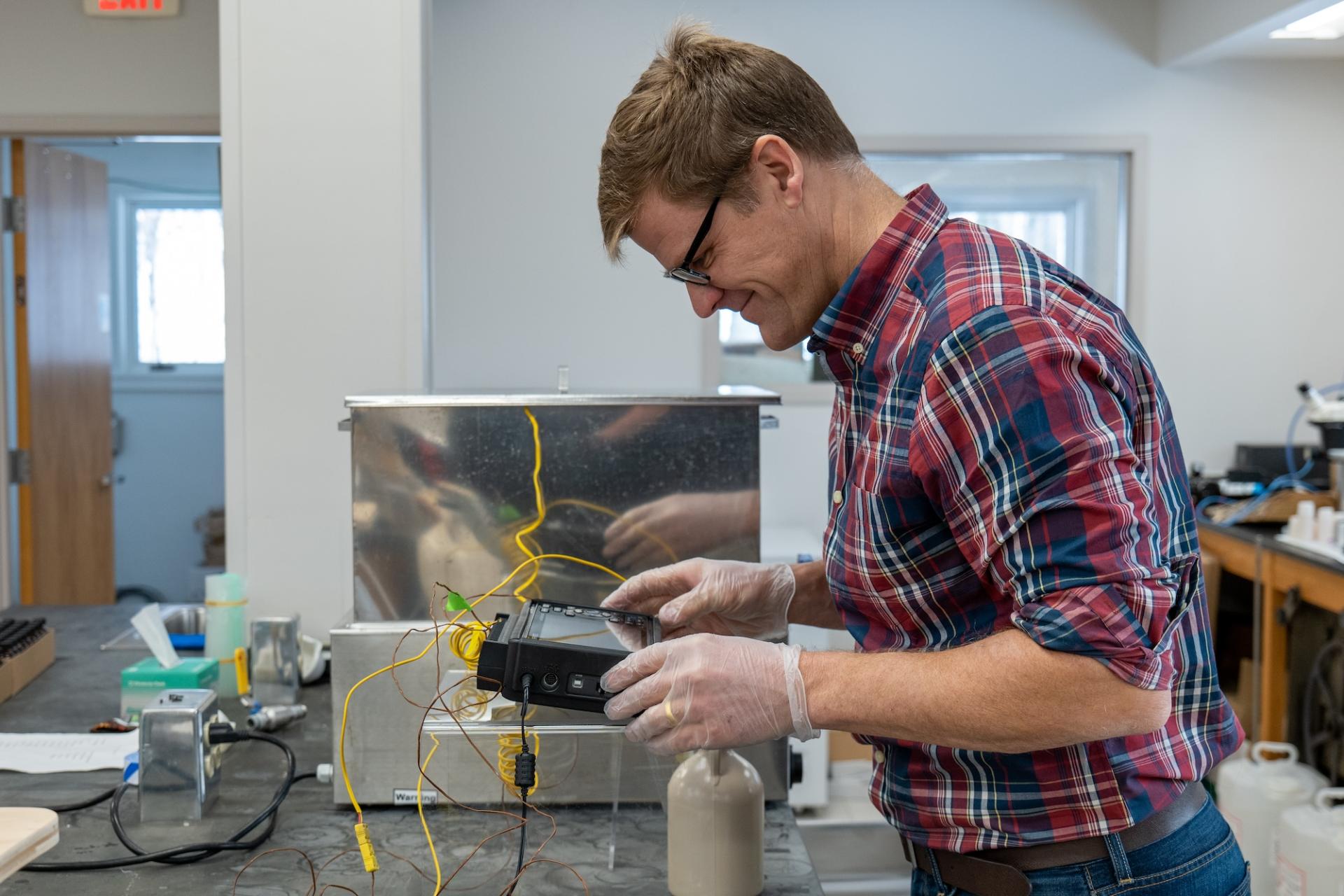
"The goal of the initial use of this equipment is to look at what containers are out there and how rapidly the syrup temperature drops," Isselhardt said.
Isselhardt says research from the University of Maine revealed syrup should stay at the critical temperature range for several minutes.
"It doesn't necessarily mean that if it drops rapidly, you're guaranteed to get spoilage; that's the next level of microbiology. I'm only going to be looking at the temperature, so producers will know how long it will stay in that range in that container," Isselhardt said.
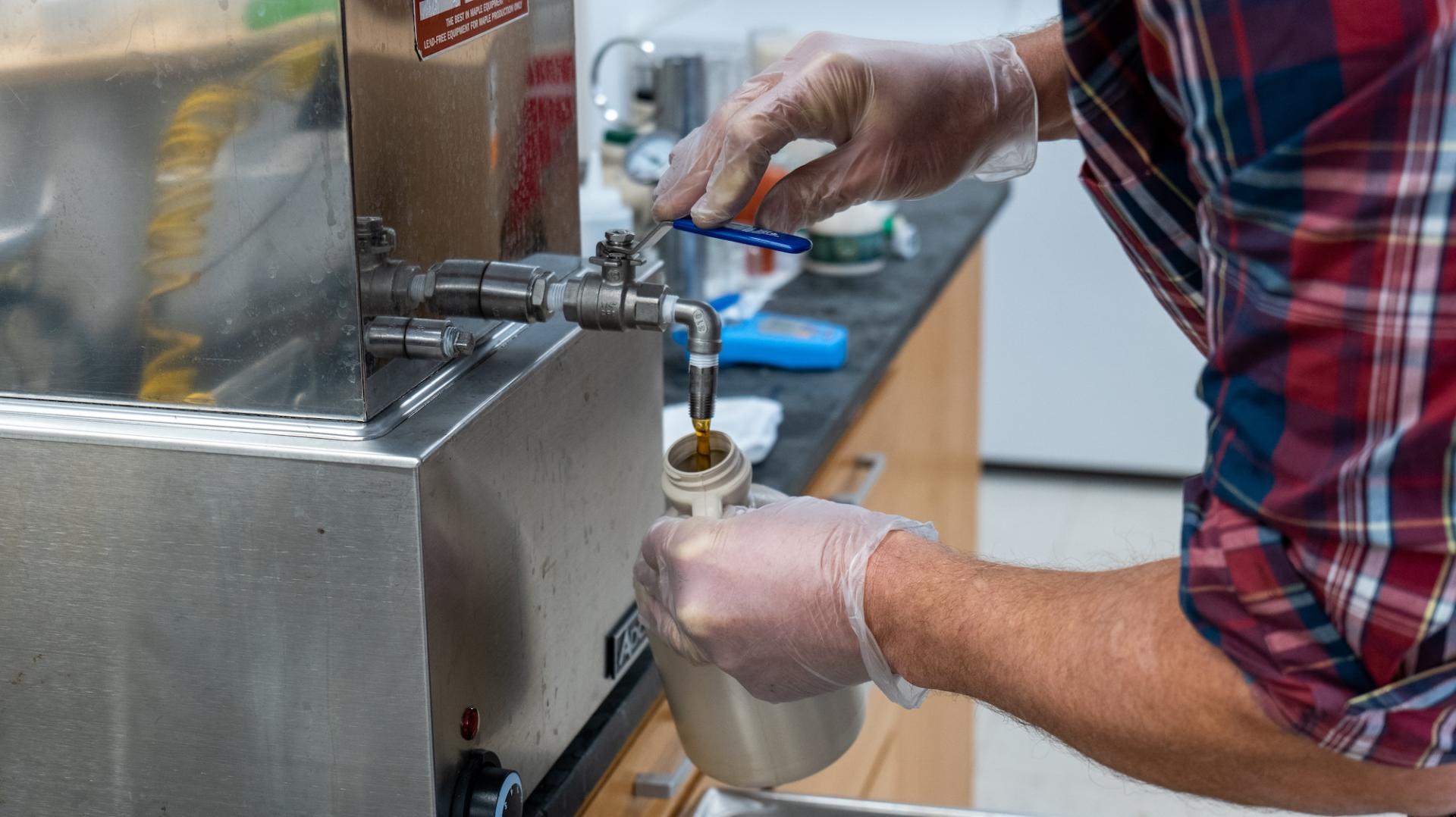
Isselhardt sources syrup from the Proctor Maple Research Center at UVM. The equipment measure temperature at varying intervals, such as every 5 or 10 seconds, in different containers.
"If a producer has a problem, it might mean tweaking their process to lengthen the time held at a given critical temperature such as filling the bottles and keep them in a water bath for a period of time to keep them hot," Isselhardt said.
As producers navigate the complexities of food safety, insights from studies like Isselhardt's aim to inform bottling techniques so consumer's can continue to enjoy safe and delicious Sunday morning pancake breakfasts.
About the FSRC:
The UVM Food Systems Research Center (FSRC) is the first USDA-funded research center to study the interconnectedness of all parts of a regional food system, from farm practices to food access. They work to uncover solutions to pressing issues through the lens of food and farming. As pioneers in USDA-funded research, the FSRC is at the forefront of discovering how what’s on our plate affects our society and the planet.
